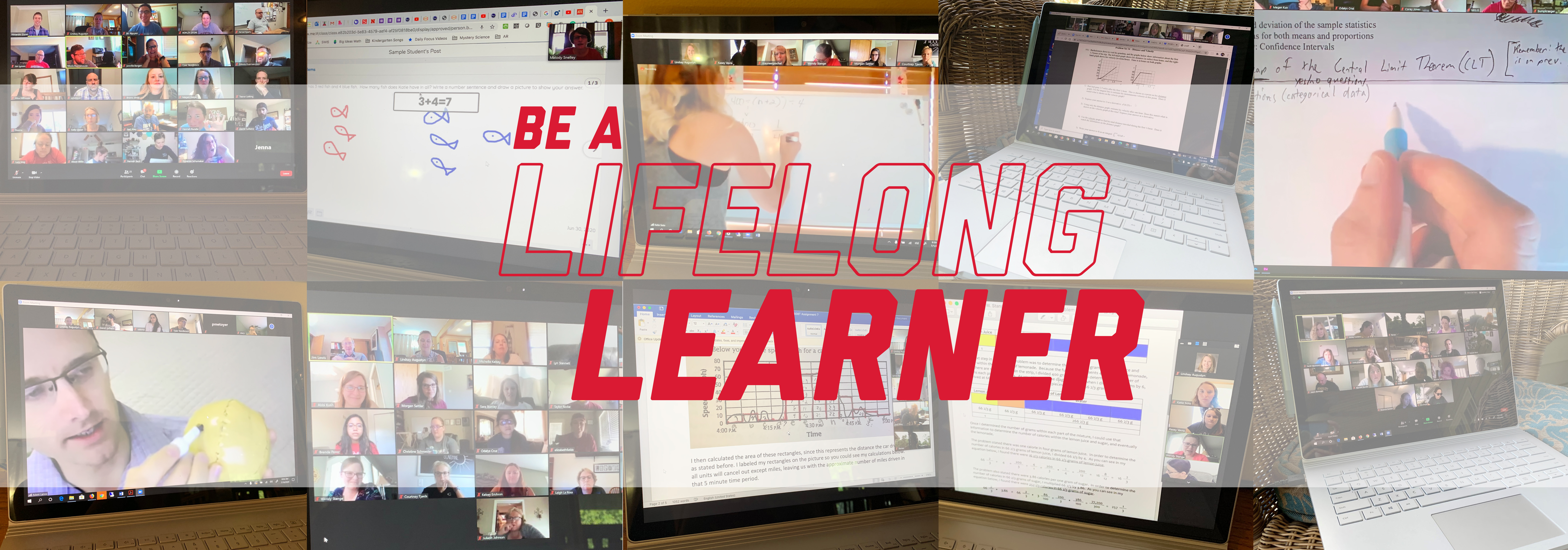
The fellowship application is now open for graduate courses this summer through the University of Nebraska-Lincoln’s Nebraska Math and Science Summer Institutes. While the 20% tuition discount is applied automatically for current classroom teachers, you can apply for additional fellowship from University of Nebraska Foundation funds. Apply here: https://forms.gle/1dNppqGEVQqNktFy8
Visit our course catalog to see all of our options: https://unlcms.unl.edu/cas/csmce/nmssi-course-catalog-2022. As follows are a few courses we would like to bring your attention to:
Elementary:
* Math 804P: Problem Solving & Critical Thinking for Elementary Teachers (K-5), June 21-July 1, M-F, 8 a.m.-noon, IN PERSON, UNL City Campus
This course seeks to build a strong foundation for the teaching and communication of mathematical concepts by the hands-on development of critical-thinking skills via problem-solving experiences. It provides a guided opportunity for the implementation of problem-solving instruction that is aligned with the Nebraska mathematics standards in both the primary (K-2) and intermediate (3-5) elementary classrooms.
* GEOS 898: Weather, Climate and Climate Change, June 21-July 2, 12:30 p.m.-3:30 p.m., WEB CONFERENCING
This course will cover the scientific principles that govern our planet's weather and climate, and will demonstrate ways to teach these concepts to students using experiments and observations. Participants will leave the course with the confidence, knowledge and resources to teach their students about weather, climate, and climate change.
Middle-level:
* Math 805T: Discrete Mathematics, June 6-10, 8 a.m.-5 p.m., IN PERSON, ESU 9 office in Hastings
This course is designed to deepen knowledge of discrete mathematics as it relates to topics covered in middle through high school curricula. Many of the course topics are introduced through "hands-on" explorations including methods of counting, graph theory (networking) and voting theory, which is particularly relevant in an election year. Teachers will be introduced to different voting methods for determining the winner of an election along with several (sometimes conflicting) notions of fairness. The course also develops an understanding of the role of precise mathematical language, reasoning, and proof in the development of discrete mathematics. The exploratory exercises in the course provide useful vehicles for promoting communication as groups will collaborate to explore problems and present various solutions.
* STAT 811T: Statistics for Middle-Level Teachers, June 13-17, 8am-5pm, WEB CONFERENCING (Zoom with breaks)
The goal of the course is to introduce you to basic statistical concepts. The course will emphasize concepts applicable to the middle-level classroom and numerical literacy. It will also provide the basis for further study in statistics and school-based research.
* BIOS 897: Modern Genetics & Inheritance, June 13-24, M-F, 1:30-3:30pm, WEB CONFERENCING **NEW COURSE**
This 2-week graduate course for middle and high school science teachers will review major principles of genetics and inheritance and investigate modern technological advances that have expanded our understanding and application of genetics to everyday life. The course will also focus on how to help teachers build a framework for developing an inquiry-based approach to teaching the basics of inheritance, genetics, and bioethics. Students will also have the opportunity to interact and discuss modern research and approaches in genetics with experts in the field.
Secondary:
* Math 812T: Geometry for Geometry Teachers, July 11-15, 8am-5pm, IN PERSON, UNL City Campus
The main goal of the course is to strengthen your mathematical background for teaching Geometry. We will focus on fundamental concepts of Euclidean geometry, and use explorations to contrast them with non-Euclidean geometries (including spherical and hyperbolic geometries). We will make extensive use of simple, concrete materials and dynamic geometry software.
* ASTR 892: Life in the Universe for STEM Teachers, June 6-July 8, ONLINE plus WEB CONFERENCING June 27-July 8, 9am-noon
This course on astrobiology focuses on the question "Are we alone in the Universe?" and applies scientific reasoning to the possibility of life somewhere other than Earth. It will study how life arose, how it has evolved over time and the conditions necessary for life to exist. It includes topics and pedagogical strategies in astronomy, biology, geology, paleontology and chemistry, and utilizes an integrative interdisciplinary approach needed to study today's complex problems. The first three weeks of the course will consist of asynchronous activities (e.g. readings, modest exercises); the last two weeks will include synchronous meetings on Zoom for at most 3 hours per day. These sessions will address major ideas, exercises, teaching resources, pedagogical pitfalls, and contemporary journal articles. A project-based post course assignment will be given. All due dates will have considerable flexibility. This course may also be appropriate for seventh- and eighth-grade teachers.
NMSSI Fellowships can further reduce the cost of a course. Current Nebraska classroom teachers will apply for NMSSI Fellowships at https://forms.gle/1dNppqGEVQqNktFy8.
The Benefits of the NMSSI:
• Most courses earn 3 graduate credit hours***
• Courses will be offered utilizing several instructional models to allow for flexibility in scheduling
• Enroll in one simple application as a post-bac student at https://go.unl.edu/gradapp
• Teachers can apply for a tuition fellowship from the NMSSI https://forms.gle/1dNppqGEVQqNktFy8
Take advantage of these professional development opportunities conveniently and affordably. Join the NMSSI community and “learn in place!” Contact us at nebraskamath@unl.edu with questions.
*** The PHYS 891 course is 2 credits.